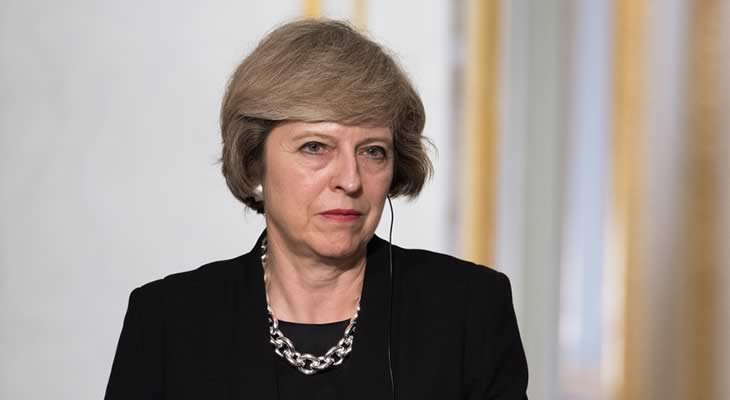The outlook for the Pound Euro exchange rate brightened at the start of the week as markets digested the failure of the German government in attaining a coalition, and news that the UK has offered a £40BN divorce sum to the EU in a bid to break the deadlock.
May Offers Divorce Sum in Exchange for Trade Talks, GBP Exchange Rates Inch Ahead
UK Prime Minister Theresa May is reportedly paving the way for Brexit negotiations to progress by preparing to offer to pay the EU some £40bn in exchange for an acceptable transition deal and trade agreement.
With time ticking away before the UK officially leaves the EU in March 2019, Theresa May and Brexit Secretary David Davis have been under significant pressure to provide clarity for businesses in the UK – with many also insisting that a ‘cliff-edge’ Brexit is avoided.
Conversely, there are many in her Cabinet (such as Michael Gove and Boris Johnson) that insist that walking away from negotiations would be better than giving Brussels a huge hand-out.
To this end, the £40bn sum is a provisional approach, dependent on the EU agreeing to certain conditions. This has limited the Pound’s gains.
British Chancellor Philip Hammond stated:
‘It remains our position that nothing’s agreed until everything’s agreed in negotiations with the EU. As the Prime Minister said this morning, the UK and the EU should step forward together’.
German Coalition Talks Fail, Euro (EUR) Exchange Rates Encumbered
German coalition talks collapsed on Monday, leaving Euro (EUR) exchange rates encumbered by a fresh bout of political uncertainty.
The Free Democratic Party (FDP) walked away from talks with Chancellor Angela Markel’s Christian Democratic Union (CDU) and the Green Party yesterday, leaving Germany without a working government two months after the election.
Reports cite severe differences over immigration, the climate, and the plan for Europe as a whole, with the largest rift being between the FDP and the Greens.
So where does this leave Merkel?
Historically, Merkel’s CDU have been in a coalition with the Social Democrats (SDP), but this prospect was ruled out on the announcement that the SPD would become the opposition.
Merkel may have to give up on a majority – the first time this has occurred in Germany in post-war history.
This would massively undermine Merkel’s leadership, however, as it would require gathering various votes from other parties every time she wishes to pass something.
Some have suggested that Germany might have to go back to the polls in a snap election. Although President Frank-Walter Steinmeier has urged the various political parties to engage in some kind of compromise in order to form a government, the success of this move is doubtful.
Eric Schweitzer, President of the DIHK Chambers of Industry and Commerce commented:
‘(The setback) is a disappointment for the German economy. There’s a danger that work on important issues for the future of our country will now be delayed for a long time’.
If a resolution is not found quickly Euro (EUR) exchange rates will remain under pressure.
UK Autumn Budget Ahead, GBP EUR Exchange Rate in Focus
Philip Hammond is due to unveil the UK’s Autumn budget on Wednesday, with the Chancellor’s plans expected to provide a boost for the fossil fuel industry, allow funding for more home construction, boost research and development and provide a new National Investment Fund for start-ups.
Hammond is reportedly hoping to regain some support for the Government after the disappointing loss of a majority at the election and the on-going turbulence of Brexit negotiations, though whether this news will bolster the Pound is debatable.
If Hammond’s announcement is well received GBP EUR may climb, while a sour note is liable to give the Euro some breathing room.


Comments are closed.